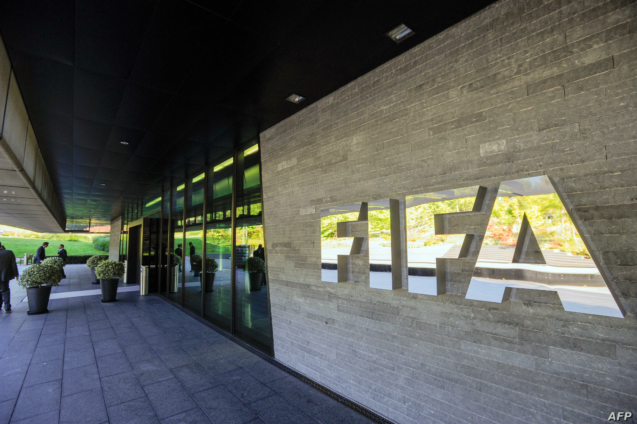FIFA is helping footballers switch eligibility and represent a second national team with a planned rule change announced Wednesday.
The proposal gives hope to players who are eligible for multiple countries but fell out of favour at their first national team, where they are bound after just a single minute of playing time in a competitive game.
The new wording would let players switch eligibility if they played a maximum of three times for the first national team — including tournament qualifying games — before they turned 21, and at least three years earlier.
The new rule will take effect next month if 211 national federations approve it at the Sept. 18 congress that FIFA is hosting online from Zurich.
A FIFA working group has tried for more than two years to shape the new proposal.
A test case at the Court of Arbitration for Sport ahead of the 2018 World Cup is key background.
Munir El Haddadi, now with Europa League finalist Sevilla, wanted to be selected for Morocco but lost his appeal against the FIFA rules. He had played just once for Spain in September 2014, as a 77th-minute substitute in a European Championship qualifier.
The new rule would not help Brazil midfielder Oscar, who has suggested switching to China where he has played club football since 2017.
Oscar would fail the test because he has played more than three times for Brazil, including after he was aged 21, and at a World Cup finals tournament in 2014.
The proposal would bar nationality switches for anyone who played at a “final tournament of the FIFA World Cup or a final tournament of a confederation competition.”
FIFA’s new flexibility even suggests letting players revert back to their original national team if they never actually play for the second one.
The existing FIFA rules have been used by many players born in Europe – who played in national age-group teams or friendly games – and switched to African countries where they have ties through their parents or grandparents.
In more updating of eligibility rules, FIFA wants to clarify how long players must live in a country before they can play for its teams.
The proposal aims to help players who as children moved with their families to a new country for non-football reasons.
Three years residency would be required if a player moved before the age of 10, and five years residency if the move was aged 10 to 18.
FIFA’s existing rule already requires a five-year residency from the age of 18 if a player wants to acquire a new national eligibility.
That allowed Brazil-born forwards Elkeson and Aloisio to switch to the current China team after they were naturalized as citizens.
Latest Stories
-
Tamale becoming transit point for drugs and arms – Northern Regional Police raise alarm
9 minutes -
Thaddeus Sory to Dame: And still crying, even more incongruously – Part I
15 minutes -
‘Confidence of the boys seem to be back’ – Kurt Okraku on Black Stars’ performance
39 minutes -
IMCC holds strategic dialogue with experts on L.E.D
55 minutes -
NDPC and IMCC collaborate to drive decentralisation reforms
59 minutes -
‘Let us reaffirm our commitment to building a continent of prosperity’- Mahama to African leaders
1 hour -
Return stolen artefacts and cultural treasures that rightfully belong to our heritage – Mahama to colonial rulers
1 hour -
The Great Legal Showdown: Ego, Arrogance, and Popcorn!
1 hour -
We remain steadfast in our belief to achieve our goals – GFA President Kurt Okraku
1 hour -
Djokovic makes more history with 100th singles title
1 hour -
Real’s Ancelotti ready for ‘new adventure’ with Brazil
2 hours -
GFA to announce new broadcaster for GPL soon – Kurt Okraku
2 hours -
‘This cannot be entertained’ – Minority criticises Mahama over silence on statutory funds
2 hours -
Real Madrid announce Xabi Alonso as new manager until 2028
2 hours -
Mahama calls for reparations to address centuries of African exploitation
2 hours

